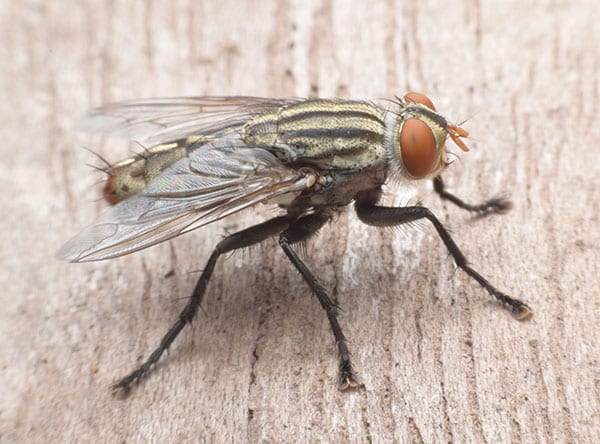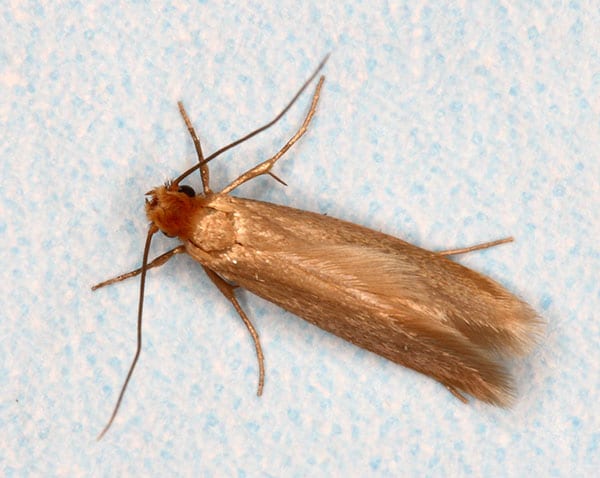Ant Control
There are several ant species commonly known to infest a home and its surrounding areas within the UK. However, the three species which are commonplace within our homes and businesses are known as the Black Ant (Lasius Niger), the Red Ant (Myrmica Rubra) and the Pharaoh’s Ant (Monomorium Pharaonis). Before ants enter a property, they may come into contact with unsanitary objects or areas resulting in the spread of bacteria and disease, contaminating anything they come into contact with, though they are mainly considered to be nuisance pests. Typically, ants will also cause damage to garden areas, building materials, and stored foodstuffs.
- Black Ants are usually found in garden areas, though they may nest within the cavities of a premises. These ants are harmless to humans.
- Red Ants are also found in garden areas and are an aggressive species with a tendency to bite, delivering a painful sting.
- Pharaoh Ants are mostly found in warmer environments (e.g. hotels, hospitals, bakeries, restaurants, etc.). They can on occasion be found in residential premises.
The limit of how large an ant colony can become is well within the thousands, and how they may spread depends on the species. Leaving a garden or premises overrun by an infestation means the amount of damage and contamination could be high, which is why professionals should be contacted as soon you suspect an ant infestation.
Personal Preventative Measures
To eliminate ants can be difficult, as the nest may be situated within the cavities of the premises or a network of nests may exist throughout your garden, ultimately becoming uncontrollable which would then require a specialist. Due to their size, they can
Despite their ability to gain access through the smallest crevices and exploit weathered materials, several preventative measures can be carried out to reduce or even control an ant infestation. Some of these measures include:
- Regularly clean all internal and external surfaces, keeping them clear of food debris and sweet substances.
- Ensure you seal away all food and sweet substances and place all food waste in stand-alone bins, avoiding leaving waste bags out in the open.
- If any fruit trees exist in or overlap your premises, ensure that any fallen fruit is collected to prevent excessive the growth of a colony.
- Regularly check the external surroundings of your premises for activity or ingress points, filling any in with the necessary materials.
- Try to ensure that any tap valves used for internal and external water sources are turned off deterring activity.
Fly Control
The flies that inhabit our homes and businesses are considered to be extremely unsanitary insects with distasteful habits. However, there is a minority that is more of a nuisance than a hygiene risk. All flies are, however, capable of contamination.
Some fly species are tiny, visible if clustered or at near sight, while others have a reasonably significant presence and can be sighted quite easily. Flies are known for contaminating foodstuffs and spreading disease due to the unsanitary areas or waste they come into contact with before entering a premises.
They can spawn from the carcasses of mammals and rodents in the form of larvae, eventually becoming flies. These flies, however, only live between one to five days. Depending on the species, they can be found in or around waste storage areas, water source areas, foodstuffs, plants or vegetables, garden areas, loft spaces and deceased vertebrates.
Flies are highly likely to come into contact with many unsanitary areas over a short duration, transferring bacteria and spreading disease, making them a high-risk pest even though their presence may seem insignificant. They are also capable of laying hundreds of eggs, making their eradication extremely urgent before an infestation becomes out of control.

Personal Preventative Measures
Depending on the severity of an infestation, preventing flies can seem either unnecessary or next to impossible, as most occupants expect them to leave as fast as they’ve entered.
While the appearance of flies may seem inevitable at times, many steps can be taken to prevent or reduce the presence of flies in your home or business. Some of these steps include:
- Your home or work should be regularly sanitised, ensuring all surfaces are free from food spillages, human or animal waste, and that all waste is contained appropriately and discarded within external bins with the lids intact.
- Keep prepped/cooked foods covered and opened foods in sealed containers to prevent contact and contamination.
- Ensure rotting and decaying foods are contained and discarded externally, as certain types of fly species will become attracted.
- Ensure house hygiene is upheld within and around the sink, toilet, and drainage areas.
- Ensure curtain nets are regularly washed, as they are often covered in hormones secreted by flies that encourage breeding.
- Flyscreens for windows and doors come in many forms, shapes, and sizes, and are a good deterrent against flies.
- Try hanging flypaper or using aerosol pesticides purchased from a DIY store to combat a persistent presence.
If you suspect you have a fly infestation at your home or business, contact Steel Guard Pest Control to see how we can help you control and eradicate your pest problem. Our team will carry out a survey and extensive reactive plan. We will also implement a preventative programme to prevent further infestations.
We also install fly screens and electronic fly killers (EFKs) for commercial kitchens and restaurants.

Moth Control
Moth infestations are a common occurrence within domestic and commercial properties in the UK, and depending on the species, the sizes of moths, their diets, and places of harbourage will vary. The larvae and adult moths will inhabit and feed on materials that exist within their immediate surroundings, potentially causing considerable damage.
Both the moths and the larvae are usually found on surfaces of all types, but can also be found in areas where stored foods, warmth and humidity are present.
Occasionally, moths will be found in loft spaces if birds’ nests are present. The larvae are incredibly destructive eaters, which ultimately will lead to financial loss, severe damage to fabrics/furs, plants and contamination to foodstuffs.
Besides their destructive nature, moths are capable of reproducing well within the hundreds, which makes them a considerable threat to furnishings, personal belongings, and stock, making their eradication extremely urgent.
Personal Preventative Measures
Preventing moths and their larvae from infesting your premises can be difficult due to their cryptic nature, their ability of flight, and their overwhelming numbers, leaving occupants not knowing where to start.
Despite the challenges that come with eradicating moths, there are a variety of preventative measures that may reduce or prevent moth activity on your premises. These include:
- Keep temperature and humidity controlled throughout the property, as moths thrive in warm, humid temperatures.
- Keep windows and doors closed while your air conditioner is running.
- Store foods in air-tight containers and ensure the pantry and food storage areas are well ventilated.
- Examine your food sources and dispose of any food that is infested or has been contaminated.
- If moths or larvae have infested clothing and linen, wash or steam clean your clothes at their highest possible temperature. Alternatively, place clothes in the freezer for a few days, which will kill any moths and larvae present.
- Regularly vacuum clothes storage areas and fabricated surfaces as its essential for removing moths and larvae. It makes good use for catching adults and pulling hard-to-see moth larvae, eggs, and pupae from out-of-reach places.
- Try using cheddar wood hangers and hanging lavender sachets in your cupboards, as they are known for being a natural deterrent.
Our Ant, Fly and Moth Control Services
At Steel Guard Pest Control, we are experts in all areas of ant, fly and moth control, property inspection, pesticide treatments, and prevention methods and techniques, while also providing useful, informed advice and recommendations. We aim to resolve infestations as swiftly and efficiently as possible and to help prevent any future outbreaks from occurring.
